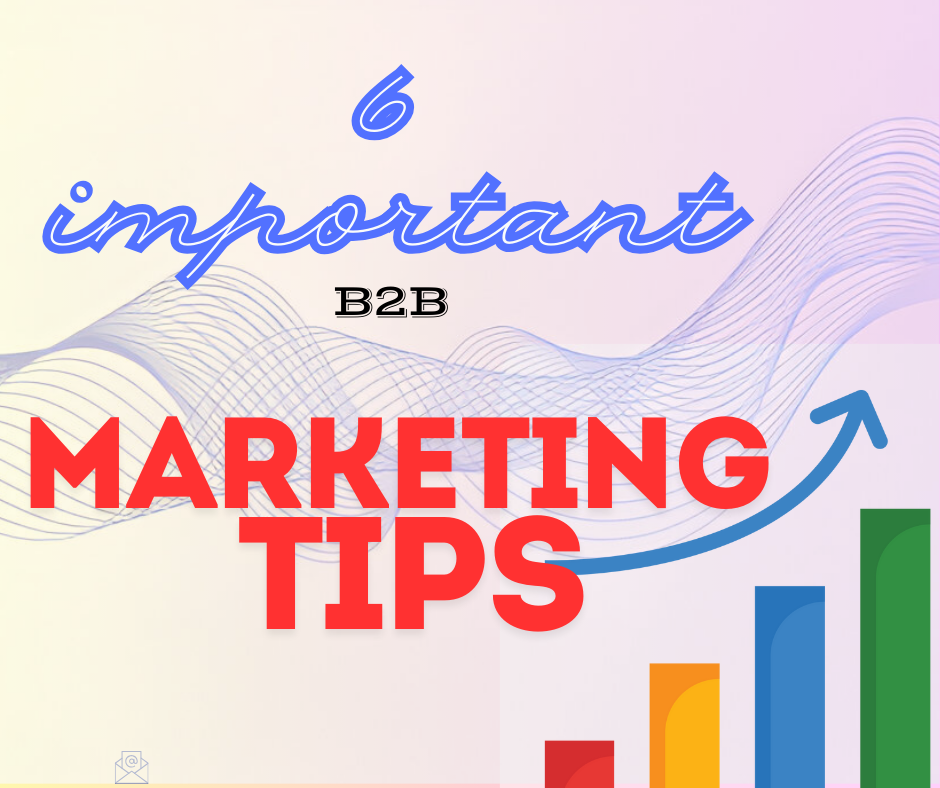In the dynamic world of B2B (Business-to-Business), where companies engage and communicate with other businesses, content marketing holds a position of paramount importance. It’s not merely about pushing products or services; rather, it’s about nurturing long-lasting relationships, fostering connections, and building trust. In this competitive environment, businesses need more than just a sales pitch—they need to provide real value. By developing insightful, relevant, and engaging content, companies can capture the attention of potential clients and keep them engaged over time. This content could take many forms, such as blog posts, case studies, whitepapers, or video content, but the goal remains the same: to educate, inform, and offer solutions to real-world problems faced by other businesses. Let us dive into 6 Important Tips for Creating Valuable B2B Content.
AtAPR Digital Marketing Agency, we understand that creating meaningful content is key to helping companies not only attract prospects but also maintain a strong relationship with existing clients. In this way, content marketing serves as a powerful tool for brand awareness, lead generation, and customer retention. The question is, how can companies develop content that stands out and makes a lasting impact? It’s all about offering valuable resources, actionable insights, and solutions that resonate with the target audience. By consistently delivering high-quality content, businesses can position themselves as thought leaders and trusted partners in their industry, further solidifying their reputation and driving long-term success.
Let’s dive deeper into the strategies that Digital Marketing agencies employ to help businesses create compelling and valuable resources that not only engage but also convert leads into loyal clients. From crafting educational blog posts to producing case studies that demonstrate real-world success, content marketing is at the heart of a successful B2B marketing strategy.
What Is Content Marketing in B2B?
Think of content marketing as a conversation starter. It’s about sharing knowledge, insights, and resources to help others. This could be in the form of blogs, whitepapers, videos, or social media posts. The goal is to provide value to your audience, helping them make informed decisions while showing your expertise.
Since you want the audience or readers to learn one or two things from your industry, it’s essential to focus on providing valuable, insightful content that educates them effectively. This branch of digital marketing requires a strategic and professional approach that not only meets but exceeds the expectations of your target audience. To truly stand out, your content must be more informative, credible, and engaging than that of your competitors. It’s not enough to simply share information; you need to offer unique perspectives, in-depth analysis, and practical solutions that demonstrate your expertise in the field.
Additionally, presenting your content in a polished and professional manner is key. This means paying attention to the tone, accuracy, and quality of your writing, as well as utilizing visuals, data, and case studies to support your points. By doing so, you position your brand as an authoritative figure in the industry, building trust and credibility with your audience. In the highly competitive digital landscape, businesses that invest in professional, high-quality content marketing are far more likely to capture and retain the attention of their target audience, leading to long-term growth and success.
Why Content Matters for B2B Companies
Content marketing is like a friendly guide that leads potential clients through the complex world of B2B. It helps to:
- Build Trust: When you share valuable insights, you show that you understand your audience’s pain points. This builds trust, making them more likely to choose you over competitors.
- Increase Visibility: Quality content improves your search engine rankings. By using relevant keywords, businesses can attract more visitors to their websites.
- Nurture Leads: Engaging content keeps potential clients interested. It provides information at different stages of their buying journey, guiding them step by step.
Tips for Creating Valuable B2B Content
Creating great content isn’t as hard as it seems, but it does require a clear strategy and a deep understanding of your audience. Start by identifying the key pain points or challenges your target market is facing, and craft content that addresses those needs with practical, actionable solutions. Here are some practical tips to help you get started:
1. Know Your Audience
Understanding who you’re talking to is the foundation of great content. What are their challenges? What type of information do they seek? Ask yourself questions about your audience to tailor your content to their needs.
2. Offer Solutions
Every business faces challenges. When you create content, focus on providing solutions to those challenges. If your audience sees that you can help them overcome obstacles, they’re more likely to engage with your brand.
3. Use Clear and Simple Language
Avoid jargon and complicated terms. Speak plainly and directly. Your goal is to make your content easy to read and understand. Imagine explaining a complex topic to a friend over coffee. Keep it simple and relatable.
4. Mix Up Your Formats
Different people consume content in various ways. Use a mix of blogs, videos, infographics, and podcasts. This keeps things fresh and engages your audience in multiple ways. Just as a well-rounded meal satisfies various taste buds, diverse content caters to different preferences.
5. Focus on Quality Over Quantity
It’s tempting to crank out content every day. However, it’s more important to produce high-quality pieces that truly add value. A single, well-researched article is worth more than ten mediocre ones. Quality content sticks, like a good song that you can’t get out of your head.
6. Promote Your Content
Creating great content is only half the battle. You need to share it with the world. Use social media, email newsletters, and SEO strategies to promote your resources. The more eyes on your content, the greater the impact.
Measuring Success: Key Metrics to Consider
After rolling out your content, it’s important to check how it performs. Consider these metrics:
- Engagement: Are people liking, sharing, or commenting on your posts? High engagement means your content resonates.
- Traffic: Check how many visitors your content attracts to your website. Increased traffic indicates growing interest.
- Conversions: Are visitors taking action after reading your content? This could be signing up for a newsletter or requesting a quote.
Conclusion
Content marketing is a powerful tool for B2B companies. It allows businesses to connect, engage, and grow their audience effectively. By creating valuable resources that speak directly to your audience, you build trust and authority. Remember, in the world of B2B, content is not just king; it’s the bridge that connects businesses to their clients. So, roll up your sleeves and start crafting content that matters. Your audience is waiting!






